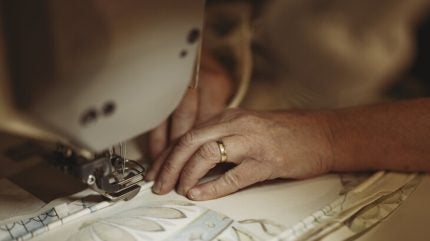
The service rollout to John Lewis locations, except for the Swindon and Canary Wharf stores, builds on the positive response from a pilot programme initiated in July 2024.
The initial trial was conducted in five locations: Oxford, Liverpool, Cheadle, Milton Keynes, and Welwyn.
Feedback from the trial indicated high demand for minor fabric repairs and seam mending – a reflection of customers’ desire to maintain their frequently used items – as well as trouser alterations for improved fit.
Starting 9 April, customers will have the convenience of dropping off items at any John Lewis store for cleaning, mending or tailoring.
The retailer said that the ongoing collaboration with Johnsons, a subsidiary of Timpson Group, will continue to provide an array of services including clothing repairs, alterations, dry cleaning, and handbag refurbishment.
Johnsons will facilitate the process by collecting the items, performing necessary services, and returning them to the store in pristine condition. The suite of offerings extends beyond apparel care to include household textiles such as duvets, bedding, curtains, and rugs.
John Lewis service & hospitality director Katie Papakonstantinou said: “We’re so excited to bring this service to all John Lewis stores. John Lewis has always been committed to providing a brilliant retail experience for customers, and repair adds another dimension to that.
“The great thing about repair is it works for the old and the new. Whether you need something tailored to fit you better or want to give your mum’s old handbag a new life, we’ve made it easy to restore treasured products.”
In alignment with sustainable practices, John Lewis pledged commitment as an inaugural signatory to Textiles 2030 led by Waste and Resources Action Programme (WRAP), which champions a shift towards circularity in textile production and consumption.
The retailer has observed a growing consumer interest in domestic repairs; sales of haberdashery items have risen by 36% annually while searches for John Lewis sewing machines have surged by 50%.
Specifically, searches for ‘pink sewing machines’ have soared by 255%, indicating a trend where consumers are buying these machines as gifts and seeking to extend the lifespan of their possessions themselves.
John Lewis Partnership ethics & sustainability director Marija Rompani said: “We’re still learning about which circular economy models work so it’s great when a trial delivers positive results and shows us how we can make it effective at scale. Repair is a crucial part of the circular economy and mirrors our commitment to designing items with quality and longevity in mind, as part of our circular strategy.”
Research conducted by WRAP suggests that over 80% of clothing repairs potentially prevent new purchases by extending the life of existing garments rather than replacing them with new acquisitions.
In June last year, John Lewis launched a 20-piece circular designed collection across its Home and Fashion divisions.



